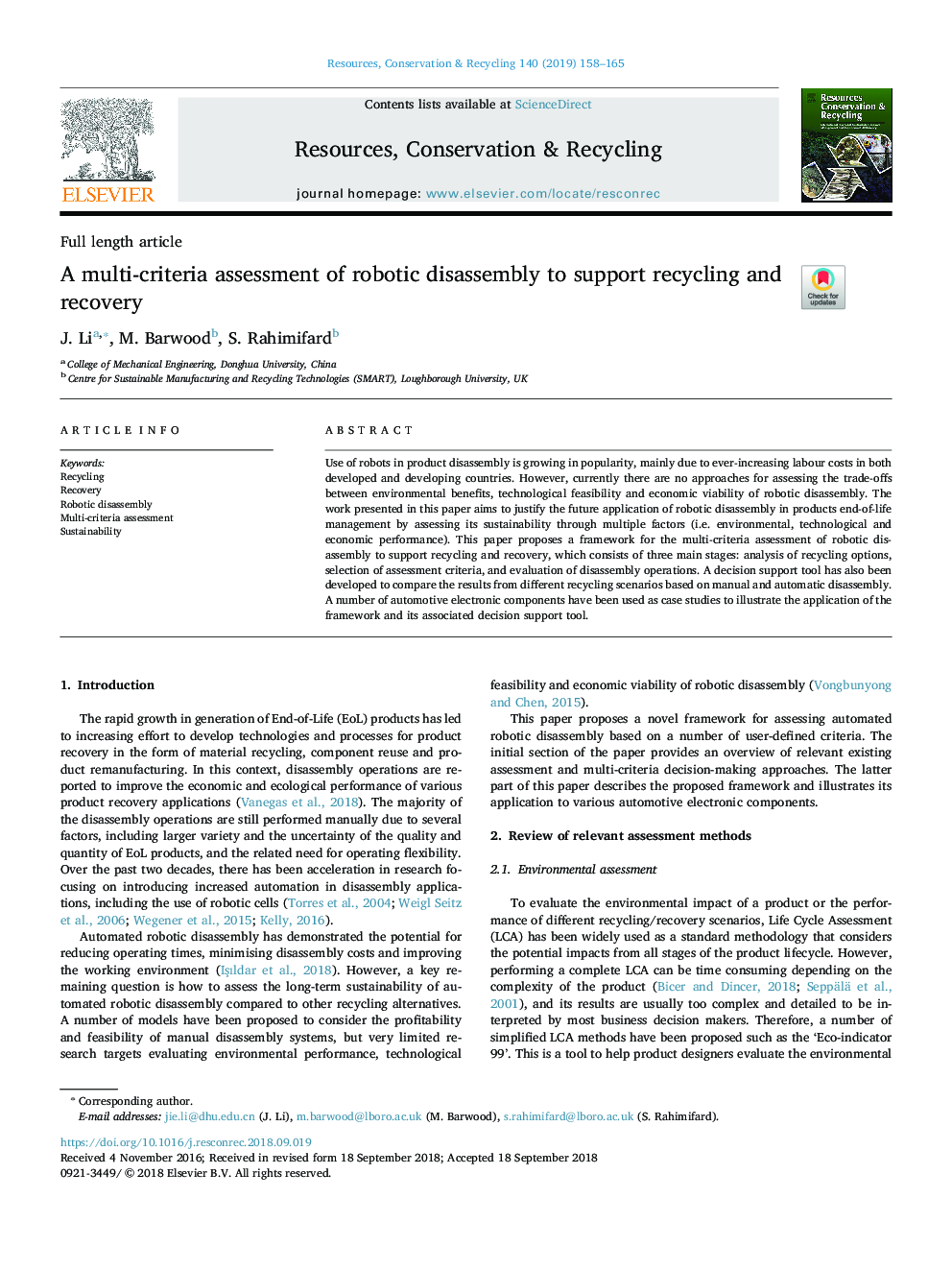| Article ID | Journal | Published Year | Pages | File Type |
|---|---|---|---|---|
| 11027502 | Resources, Conservation and Recycling | 2019 | 8 Pages |
Abstract
Use of robots in product disassembly is growing in popularity, mainly due to ever-increasing labour costs in both developed and developing countries. However, currently there are no approaches for assessing the trade-offs between environmental benefits, technological feasibility and economic viability of robotic disassembly. The work presented in this paper aims to justify the future application of robotic disassembly in products end-of-life management by assessing its sustainability through multiple factors (i.e. environmental, technological and economic performance). This paper proposes a framework for the multi-criteria assessment of robotic disassembly to support recycling and recovery, which consists of three main stages: analysis of recycling options, selection of assessment criteria, and evaluation of disassembly operations. A decision support tool has also been developed to compare the results from different recycling scenarios based on manual and automatic disassembly. A number of automotive electronic components have been used as case studies to illustrate the application of the framework and its associated decision support tool.
Related Topics
Physical Sciences and Engineering
Energy
Renewable Energy, Sustainability and the Environment
Authors
J. Li, M. Barwood, S. Rahimifard,
